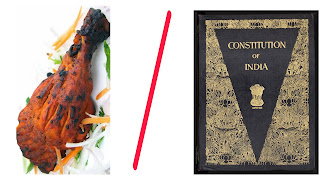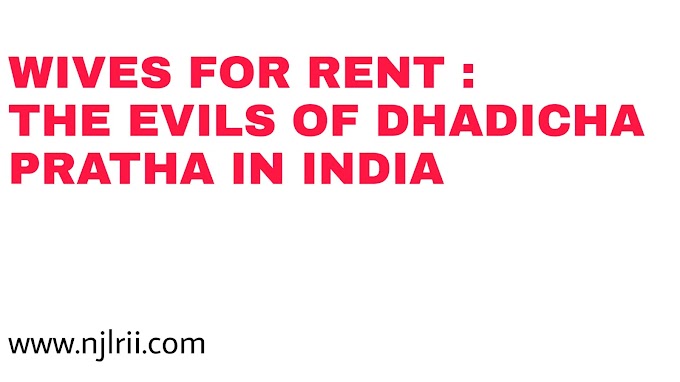By : Ninaad Deshmukh
ABSTRACT:
The right of choice is an intrinsic part of the right to life and personal liberty. As such, all individuals in our country are endowed with the freedom of choice in all aspects of their life. But there are certain situations wherein these rights might be at risk. At times, there might be fair justification for the same, but such justification requires intense scrutiny while keeping in mind the very fundamental notions of the principles that our country and its system stands on. This article looks at the recent question of meat ban during Navratri in the light of the same and aims to assess and analyze the presence and/or absence of merit in the arguments for and against the ban, to ultimately reach a conclusive stand on the matter.
INTRODUCTION:
India prides itself on being a secular democracy. Its voluminous constitution guarantees to all of its citizens a significant number of rights - both fundamental as well as other constitutional rights. But these rights are not absolute. As such, there are various instances wherein we find the state derogating from the otherwise widely applicable rights. For example, the Right to Freedom of Speech and Expression, as guaranteed under Article 19(1)(a) of the Constitution of India, is one of the most valuable rights available to the humans in general and the citizens of India in specificity. But, there are numerous provisions and case laws which shed light on different facets of the conditional nature of this right.
While clause (1) of Article 19 provides the right to freedom of speech and expression, clause (2) of the same makes it clear that the right is subject to ‘reasonable restrictions’ that can be imposed by the law. These are on the grounds of -
- interests of the sovereignty and integrity of India;
- the security of the State;
- friendly relations with foreign States;
- public order, decency or morality or in relation to contempt of court;
- defamation or incitement to an offence.
While the list itself seems expansive, there is a huge amount of interpretative discourse that has been given by the Indian Judiciary as regards the matters of restrictions provided in the constitution. The very recent fiasco between reputed senior counsel Mr. Prashant Bhushan and the Supreme Court of India serves as a striking example of the same.
Similarly, there are many such examples, not only regarding the Right to Freedom of Speech, but also a lot of other rights such as the Right to Life, Right to Equality, the Right to Freedom of Religion, Cultural and Educational Rights, etc. but, the primary question relating to all of these rights remains the same - where, if at all, should one draw the line?



.jpeg)


